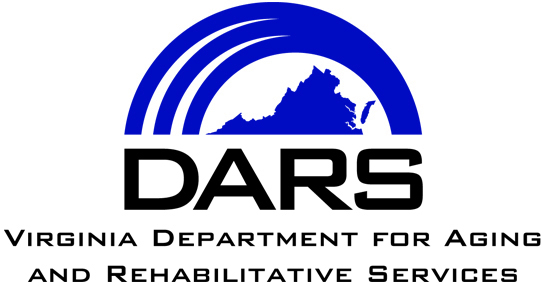Chapter 6.01 Contents:
[REVISED: 9/15/22] - Medically-recognized diagnostics may be authorized in Application status and higher, after maximizing comparable benefits (per 2001
Federal Regulation 34 CFR § 361.53), but only to the extent (per 2001
Federal Regulation 34 CFR § 361.42 and 2001
Federal Regulation 34 CFR § 361.45 (b)) that it is needed and existing information does not describe the current functioning of the client, is unavailable, insufficient, or inappropriate to determine eligibility, assign Order of Selection priority category, or develop the Individualized Plan for Employment (IPE).
- Before authorizing it, the counselor shall:
-
Ensure it is a medically-recognized service (has a current CPT code). Obtain the CPT code(s) from the diagnostics service provider.
-
If using a specialist, follow additional requirements. See
Policy 2 of this chapter.
-
Obtain insurance pre-approval if the insurance plan requires it. Physical and mental restoration services, including diagnostic and evaluation services related to subsequent treatment of a medical or mental condition, are subject to comparable benefits policy (see
Chapter 14.2, COMPARABLE, Policy 1). If the insurer denies a pre-approval request, or the diagnostic is not medically-necessary according to the insurer, doctor, or dentist, the counselor may (per 2001
Federal Regulation 34 CFR § 361.53) authorize diagnostics essential to determine eligibility, assign Order of Selection priority category, or develop the Individualized Plan for Employment (IPE).
-
Authorize all components of diagnostic test(s) before the visit is scheduled or the tests are performed. Authorization for an examination implies authorization for X-ray or laboratory procedures or tests necessary to diagnose and make medical recommendations. If billed for unforeseen medically-necessary services related to the authorized service (non-incidental), the counselor shall prepare a separate authorization for the additional cost, and use the same date as on the initial authorization.
-
Separate authorizations may be needed for professional and technical (hospital) components of a fee. For fee schedule, see the
DRS Services Reference Manual. For authorization amount after maximizing comparable benefit, see
Chapter 8.14, PHYS RES, Policy 1, Section D. Diagnostic services in a hospital (either inpatient or outpatient care) must (per
State Regulation 22 VAC 30-20-120), be included in writing by a doctor as a component of the VR diagnostic service and authorization for hospital services shall not exceed three (3) days for diagnostic purposes.
-
For HIV testing (per
§ 32.1-37.2 of the Code of Virginia), include both pre- and post- test counseling by a person experienced in this type of counseling, and providers include the health or medical practitioner who administers the HIV test, the health department, other known state or local programs, or VR counselors specifically trained in this specialty.
- To apply comparable benefit to DRS authorization and payment, see
Chapter 8.14, PHYS RES, Policy 1, Section D.
[REVISED: 8/2/13] - The counselor may authorize medical diagnostics from a specialist already serving the client. For authorization procedure, see Policy 1 of this chapter.
- Authorizing to a specialist not already serving the client shall require:
-
Referral from a doctor or dentist already serving the client, or
-
Referral from a doctor or dentist whose report(s) suggest the impairment is severe enough to warrant a specialist, or
-
Documented consultation with the DARS chief medical consultant that the specialty is appropriate and the impairment is severe enough to warrant a specialist,
-
Preference given to any board-certified providers serving the community if state regulation establishes a specialty board in that medical field (for list, see
Policy 4 of this chapter).
[REVISED: 8/2/13] - At client request, the counselor may authorize a second medical opinion in Application status and higher. For authorization procedures, see
Policy 1 of this chapter.
- If the two medical opinions conflict, the counselor shall (per
State Regulation 22 VAC 30-20-120 (4)(b)(2)) authorize a third opinion and the counselor decision shall be made on the two concurring opinions.
Back to Chapter Index
[REVISED: 8/2/13] DRS policy on using specialists (for diagnostics services, see
Policy 2 of this chapter . For medical treatment services, see
Chapter 8.14, PHYS RES), applies to these specialties regulated by a state board: acupuncturists,
athletic trainers,
audiologists,
chiropractors,
counseling,
dentists and dental assistants,
dialysis care technicians,
dietitians,
healing arts practitioners,
hearing aid specialists,
massage therapists,
medication aides,
midwives,
nursing professions,
nutritionists,
occupational therapists and assistants,
opticians,
optometrists,
osteopathic medicine practitioners,
otolaryngologists,
pharmacists and pharmacy technicians,
physical therapists and assistants,
physicians and physician assistants,
podiatrists,
psychiatrists,
psychologists,
radiological technology practitioners,
respiratory care practitioners, and
speech-language pathologists.
[REVISED: 8/2/13] - Psychological information older than one (1) year may be used when the counselor believes it is still valid; otherwise, the counselor may purchase a new assessment and report. For authorization procedures, see
Policy 1 of this chapter.
- For Workers Compensation cases, psychological testing shall not be authorized as a routine tool, but may be authorized when the former employer writes that no job exists for that employee within the company.
- Mental health services provided to diagnose mental or emotional disorders must be provided by qualified personnel in accordance with state licensure laws.
[REVISED: 8/2/13] The counselor may authorize a dental evaluation. For authorization procedures, see
Policy 1 of this chapter. A full periapical x-ray is not required.
[REVISED: 8/2/13] DRS shall only use medical service providers, including out-of-state vendors, who are Virginia board licensed or certified within the scope of their practice as defined under Virginia law and the state regulatory board (per Federal Register Vol. 66, No. 11, pp 4430 – 4431 guidance for standards for vendors regulation in 2001
Federal Regulation 34 CFR § 361.51).
For medical specialists policy, see
Policy 4 of this chapter.
Links to the Code of Federal Regulations (CFR) are currently unavailable while we await federal changes to the vocational rehabilitation program. Upon promulgation of the final regulations the links will be updated and activated.
|

